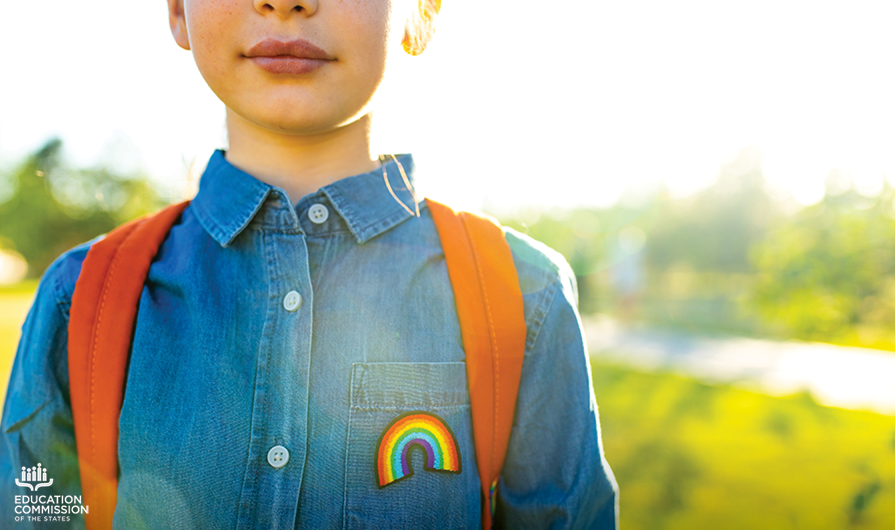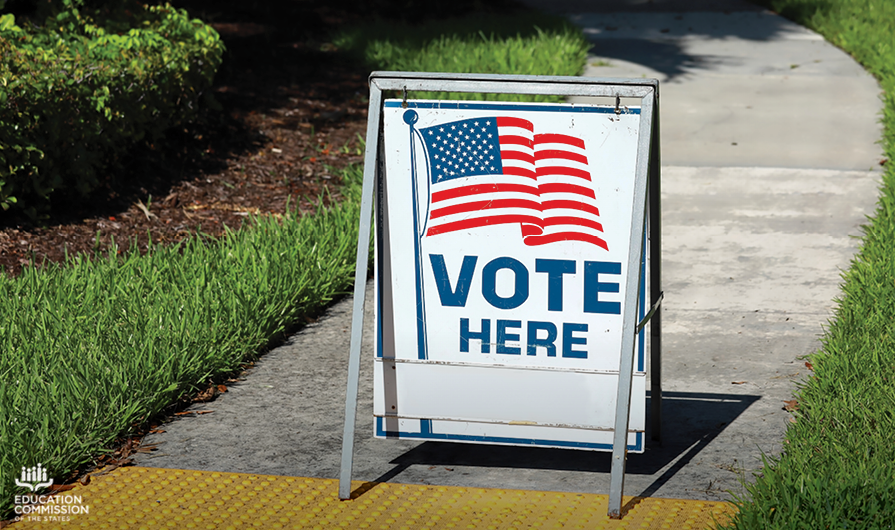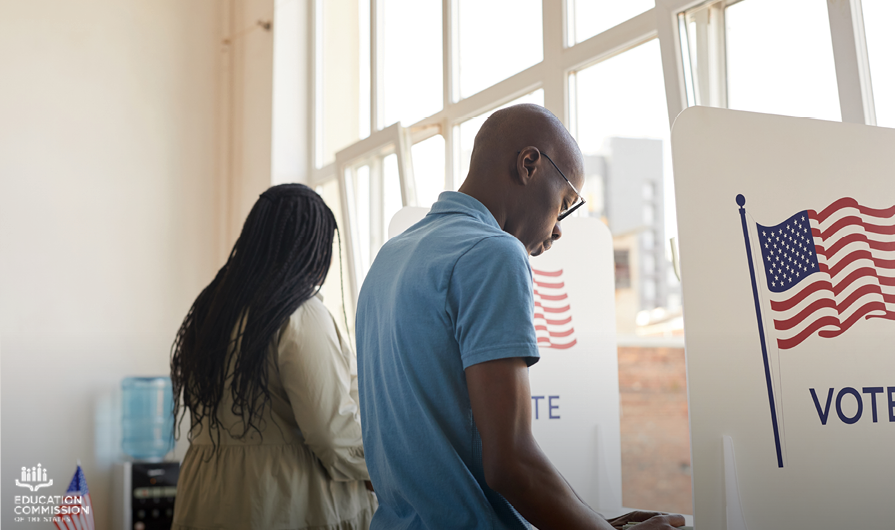An estimated 22.5% of high schoolers across the country self-identify as lesbian, gay, bisexual, questioning, or other identity. In 2022, many states have enacted policies that impact the LGBTQIA+ student community.* As we recognize LGBT History Month, we see a number of policies that may have an effect on instruction, school conditions, athletic participation, and student health and wellbeing.
A few states enacted or are considering legislation regarding classroom instruction and curriculum. Alabama’s H.B. 322 prohibits individuals or groups in charge of instruction to students in kindergarten through fifth grade from providing instruction or engaging in classroom discussion on sexual orientation or gender identity in a manner that is not considered age appropriate or developmentally appropriate for students according to state standards.
In Florida, H.B. 1557 prohibits classroom instruction about sexual orientation or gender identity in kindergarten through third grade in a manner which is not age appropriate or developmentally appropriate for students. In Ohio, H.B. 616 is currently pending and would prohibit teaching curriculum or providing instructional materials on sexual orientation or gender identity in kindergarten through third grade.
Several states enacted legislation requiring public schools to designate school‐sponsored athletic teams or sports as male, female or co‐ed and require participation to be based on the participant’s sex assigned at birth. In 2022, Iowa, Oklahoma and South Dakota enacted legislation to restrict school athletic participation based on a student’s sex assigned at birth.
In Indiana, Kansas, Kentucky and Utah, similar bills were vetoed by their respective governors. The Indiana, Kentucky and Kansas vetoes were overridden and the bills were enacted. Kansas’s veto was sustained and the legislation failed. Similarly, but not associated with athletic participation, Alabama enacted H.B. 322 that requires local education agencies to ensure the use of multiple occupancy bathrooms in a school is based on students’ sex assigned at birth.
Other states have enacted legislation that provides protections or supports for students who identify as members of the LGBTQIA+ community. Maryland’s H.B. 850 requires all county boards of education to adopt and maintain a written anti-discrimination policy which prohibits a school from discriminating, disciplining or refusing enrollment to a student based on sexual orientation or gender identity. These requirements apply to a wide range of programs, specifically including nonpublic pre-K, primary and secondary schools that receive state funds.
Oregon’s H.B. 2590 (2021) created the Task Force on Student Success for Underrepresented Students in
Higher Education, including students that identify as members of the LGBTQIA+ community, to address institutional access, student retention, and graduation time to completion and workforce entry. The task force has met throughout 2022 and is scheduled to release its final report in December 2022.
Students who identify as members of the LGBTQIA+ community are more likely than their non-LGBTQIA+ peers to experience violence at school and have fewer opportunities to connect with others at school. A recent survey found that 45% of LGBTQIA+ youth seriously considered attempting suicide in the past year, with one in five transgender and non-binary youth attempting suicide.* LGBTQIA+ youth of color reported higher rates of suicide attempts than their white peers.
The survey also found high rates of anxiety (75%) and depression (61%) among LGBTQIA+ youth ages 13-17. Not surprisingly, schools play an important part in these student’s lives. Overall, 55% of respondents identified school as an LGBTQIA+ affirming space, while 37% identified home as an affirming space. For transgender respondents, 51% identified school as an affirming space compared to 32% that identified home as an affirming space.
We continue to track legislation as states respond to the issues that impact LGBTQIA+ students. Click on the “LGBT Students” sub-issue in our State Education Policy Tracking tool to find out more.
*For this blog post, we are using the acronym LGBTQIA+ to represent the lesbian, gay, bisexual, transgender, queer, intersex and asexual communities. This acronym does not intend to exclude any other groups or individuals who identify themselves as part of this community.
* The CDC used the phrase “seriously considered attempting suicide” in its survey on student mental health, substance abuse and suicidal ideation during the onset of the COVID-19 pandemic, which The Trevor Project mirrored in its survey for comparison. To retain accuracy of the questions used in data collection, we’ve included this phrasing in the post, but we recognize that all kinds of suicidal ideations are serious to individuals and their loved ones.









